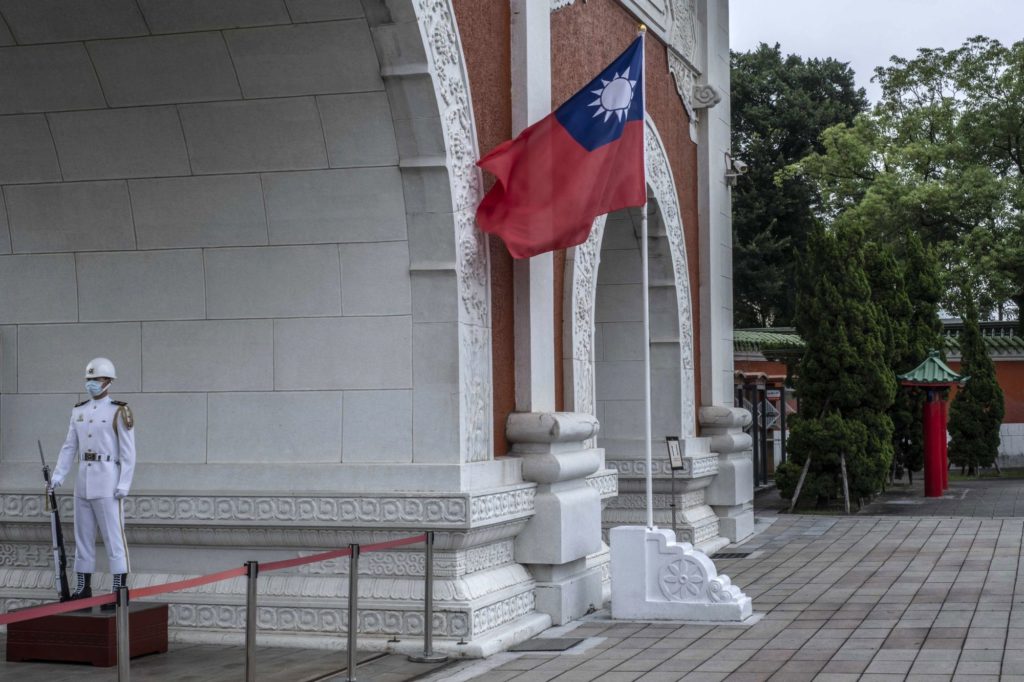(Bloomberg) — The US and Taiwan are planning to announce negotiations to deepen economic ties, people familiar with the matter said, in a fresh challenge to Beijing, which has cautioned Washington on its relationship with the island.
The talks would focus on enhancing economic cooperation and supply-chain resiliency, falling short of a traditional free-trade agreement, according to the people. The deal is likely to include areas of trade facilitation, supply-chain work and trade in agricultural products, they said, speaking on condition of anonymity ahead of a public announcement.
Those elements are similar to the pillars in the 13-member Indo-Pacific Economic Framework that President Joe Biden announced during his visit to Tokyo this week. While a bipartisan group of lawmakers wanted Taiwan in that group, it was excluded because some countries that agreed to join refused to have Taipei included over fear of retribution from Beijing, according to people familiar with the process.
The talks are an effort to elevate the US-Taiwan economic relationship, the people said, and will go beyond existing discussions under a Trade and Investment Framework Agreement between the two governments.
Biden earlier this week made a public pledge to militarily support Taiwan in the event of a Chinese invasion, before he and White House officials walked the comments back. China denounced the president’s remarks, and has protested Washington’s deepening official bilateral engagement with Taiwan, which it regards as part of its territory despite never controlling it.
Read More: Biden’s Latest Taiwan Gaffe Stokes Tensions With Beijing
Secretary of State Antony Blinken on Thursday reiterated that US policy toward Taiwan hasn’t changed and that the US doesn’t support Taiwan independence. Still, the US and Taiwan have a “strong unofficial relationship,” he said in a long-awaited speech on the Biden administration’s policy toward China.
A USTR spokesman declined to comment on the plans for talks on deepening bilateral economic engagement. A spokesperson for Taiwan’s economic and cultural office in Washington didn’t respond to a request for comment.
US Trade Representative Katherine Tai told Bloomberg TV this week that she and her Taiwanese counterpart, John Deng, had “very positive conversations” when they recently met in Bangkok.
Related: Blinken Aims at Xi in Speech Vowing to Shape the Global Order
“We are committed to deepening and enhancing the bilateral trade and economic relationship and we instructed our teams to work over the course of the next couple of weeks on that deepening and enhancement,” she said.
The two agreed to meet again in the coming weeks to discuss the path forward, the USTR said in a readout. A large Taiwanese government and business delegation is expected to attend the SelectUSA Investment Summit outside Washington in late June, giving both sides another chance to meet face-to-face.
Chips Issue
US officials have stressed that the reliance on Taiwan for semiconductors in particular is a geopolitical strategic problem and have pushed for a subsidy program that incentivizes domestic manufacturing of chips. That initiative is part of broader legislation that could pass later this year.
Taiwan for years has been pushing the US to negotiate a trade agreement, but American officials have stressed that roadblocks in Taiwan’s economic practices, including on agriculture, would need to be resolved as a prerequisite for any negotiations to take place.
The Trump administration, in particular, was hesitant to engage with Taiwan economically while it was negotiating its phase-one trade deal with Beijing, people familiar with the deliberations said at the time said.
More stories like this are available on bloomberg.com
©2022 Bloomberg L.P.











